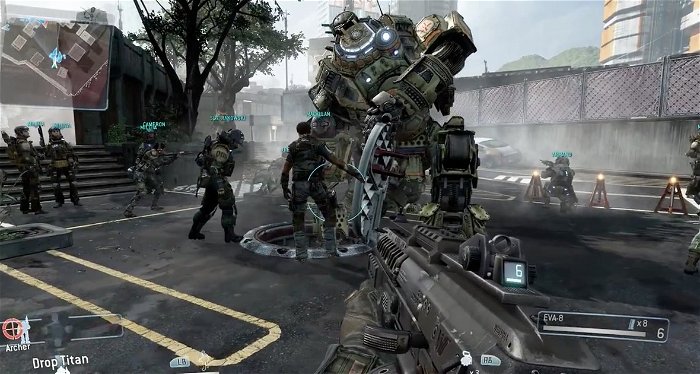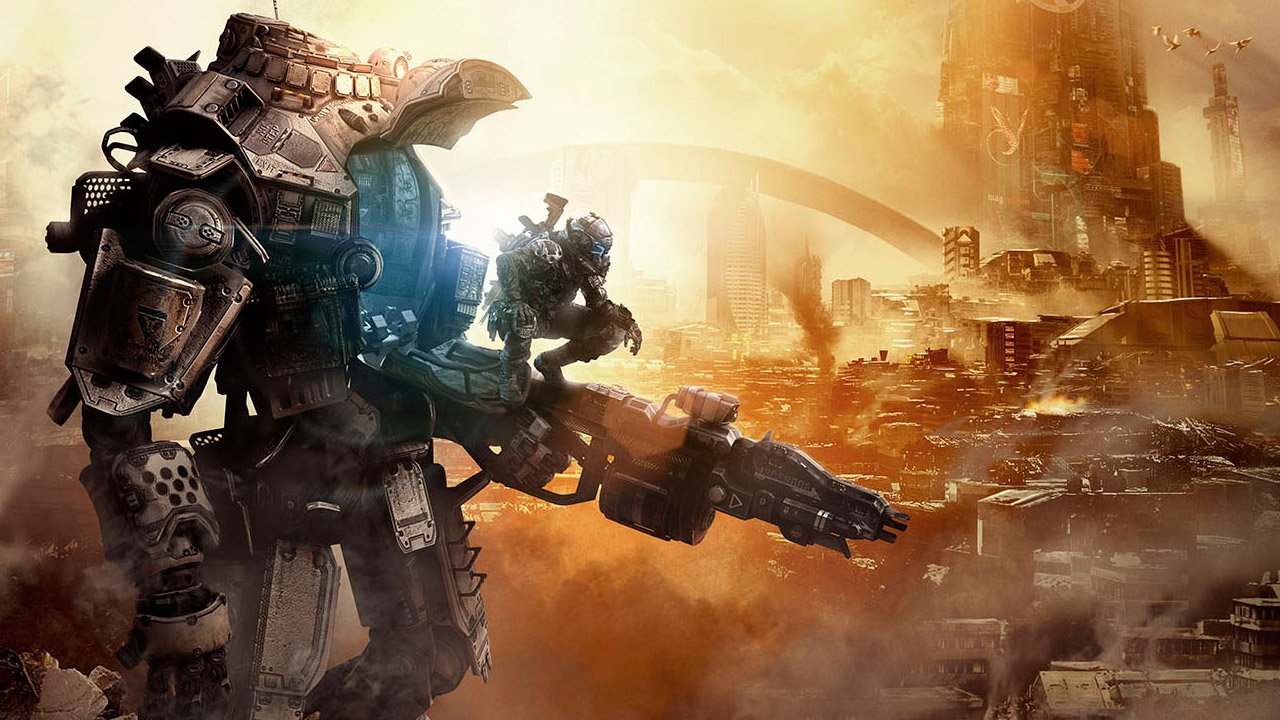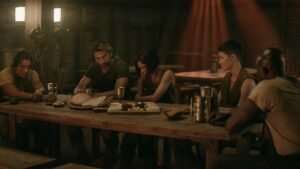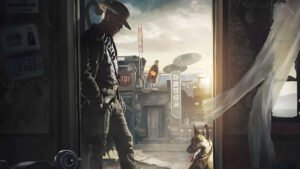As Creative Director for Respawn Entertainment, Steve Fukuda is a busy man.
The Canadian launch party for Titanfall was a typically jubilant affair, with excited fans thronging demo stations, typical hors d’oeuvres making the rounds, and the excited chatter of happy gamers mingling with the sounds of future-warfare emanating from demo pods around the venue. While this revelry is taking place, Fukuda is attending via Skype connection, holding interviews from a sparsely-decorated office in LA, the only noteworthy feature of which is the whiteboard behind him that bears a three-inch inscription: “It’s Done. (For Now)”.
Fukuda seems gratified by the warm critical reception to the game so far. He cites the ‘freshness’ as a product of their initial goal to avoid a lot of what other people were doing, which required a certain amount of ignoring the commonly held assumptions about multiplayer shooters and making the most fun game they could, designing through iteration to overcome the challenges that arose. “That process happened to work out, and people seem to be responding to that”.

Titanfall originally started out with a specific plan, but the final product today represents a lot of experimentation. “A lot of us got caught up in the top-down aspect – the story, the universe, and contextual explanations for everything that’s possible in the game. After a while, we increasingly grew convinced that maybe we should go in the opposite direction, and we started exploring abstract gameplay concepts that were separate from the context.”
“It’s a tough shift to make – especially when your background is to make the most cinematic levels possible – suddenly you’re looking at coming up with a whole new kind of way to play the game. That mental shift was a big part of the process.”
Fukuda doesn’t go into specifics, but gives a hypothetical to underline his point. “Let’s say you want to make a superhero game. People will say ‘Superheroes? Jumping across buildings in a single bound? Running on walls? Sounds goofy.’ But don’t think about the concept – don’t worry about the guy in tights – just think about how fun it is to have that amount of movement freedom. That’s an example of how gameplay and concept can fight each other, but ultimately, gameplay has to win.”
“It was a long road, with a lot of iteration involved.” Early on, the AI drones that populate the arenas caused issues – “we had to make sure that the AI were no shooting you in the back when you were dealing with an enemy player.” Every possible variable in the game was subjected to revision and playtesting – “we particularly iterated on the motion model – running on walls, the double-jump height, reconciling that with the geometry of the levels, and the motions of the Titans. Even the dash ability of the Titans – how often and how fast you could move – all these were being tweaked constantly to make it fun.”
It’s bold that as a flagship-console title, Titanfall is multiplayer only. There was a desire to keep the team small, which necessitated a certain amount of focus, and there was a lot of friction within Respawn initially as the team members grappled to avoid doing the same old thing. Many of the team came from a singleplayer background, which generally calls on a different skillset.
“When you’re working on singleplayer games, you can lock yourself away in an office and work on your level to the exclusion of all other things” Fukuda explains. The multiplayer approach involves a lot of interlocking game mechanics – “even the scale of your geometry and things like that have an effect on everything else. Everyone else needs to be working in tandem to get the feel right, otherwise it’s going to cause problems. Working closely as a team was critical.”

With no traditional campaign mode, Fukuda wanted to cater to the “things that people may take for granted in single player – that sense of visceralness, the cinematic action, and cinematically charged game mechanics”. This is the mentality that brought about the bespoke animations that trigger when a player enters a Titan. “We hand-crafted all these very specific animations for certain situations. Depending on your angle of approach you’ll enter the hatch differently, or you’ll get the fun stuff when piloting the Titan, like ripping out a pilot, squishing him in your hand, or crushing him against the wall depending on the conditions when you melee.”
As for what’s next for the team, it doesn’t sound as though they plan on sitting back and enjoying the fruits of a successful launch anytime soon. “Right now we’re looking at how the public is reacting, and what kind of crazy exploits are going to show up. We’re thinking about what we want out of the game based on player input, because we definitely want to support it going forward. We have a list of things that we want to tackle, and we’ll prioritize it based on the feedback”
I ask Fukuda what kind of design challenges or genres he’d like to tackle after Titanfall, and he gets quiet. “I haven’t really thought that far ahead. We’re a small team, and we’re still really excited about exploring the design space within Titanfall, so there are no plans yet”.
Done for now, indeed.



